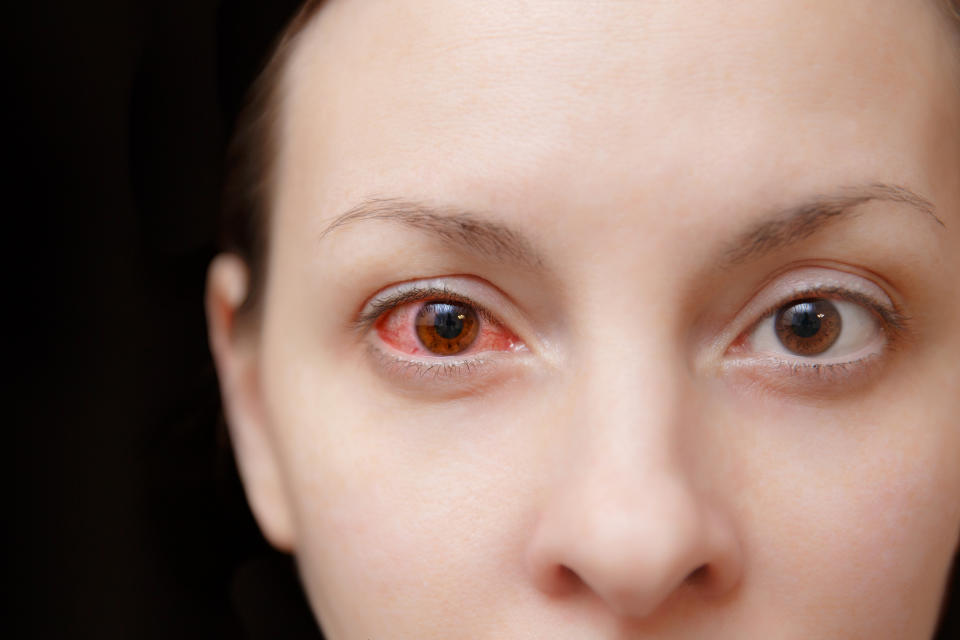Doctors warn contact lens wearers after recent spike in rare eye infection
Eye specialists are urging those who wear contact lenses to be extra careful after a recent spike in a rare eye infection that can lead to blindness.

According to a recent study published in the British Journal of Ophthalmology, reports of Acanthamoeba keratitis have tripled in the U.K since 2011. Researchers reveal that although preventable, those who wear contact lenses are particularly susceptible to the infection that can cause permanent blindness.
“This infection is still quite rare, usually affecting 2.5 in 100,000 contact lens users per year in South East England, but it’s largely preventable,” the study’s lead author, professor John Dart, said in a statement. “This increase in cases highlights the need for contact lens users to be aware of the risks.”
Acanthamoeba keratitis occurs when amoeba infects the cornea, causing redness, blurred vision, sensitivity to light and eye pain.

An infected cornea can feel as though there’s something in your eye, and should be examined by a medical professional as soon as symptoms occur.
In severe cases, patients are left with less than 25 per cent of vision. Overall, the study says that another 25 per cent of patients will require corneal transplants to treat the disease and restore vision.
ALSO SEE: Chrissy Teigen swears by it, but can eating your placenta actually help with postpartum depression?
“Acanthamoeba keratitis is a rare infection, but when it occurs, it has a devastating effect for a long period of time on the patient’s life,” Dart said. “Only 70 per cent of patients were cured within 12 months. For the remaining 30%, the treatment took over a year.”
Although Acanthamoeba keratitis can affect anyone, the study reports that people wearing contact lenses are likely more susceptible due to contaminated lens cases and poor contact lens hygiene.
“People who wear reusable contact lenses need to make sure they thoroughly wash and dry their hands before handling contact lenses, and avoid wearing them while swimming, face washing or bathing. Daily disposable lenses, which eliminate the need for contact lens cases or solutions, may be safer and we are currently analysing our data to establish the risk factors for these,” said Dart.
Contact lens wearers are encouraged to replace their contact lens cases every three months, and avoid using tap water to wash their contact lenses and never put them in your mouth. Experts say when possible, use disposable lenses, which carry a lower risk of infection.
Let us know what you think by commenting below and tweeting @YahooStyleCA!
Follow us on Twitter and Instagram.
Check out our brand new podcast, Make It Reign — our hot takes on all things royals in a non-stuffy way — on Apple Podcasts and Google Podcasts.



